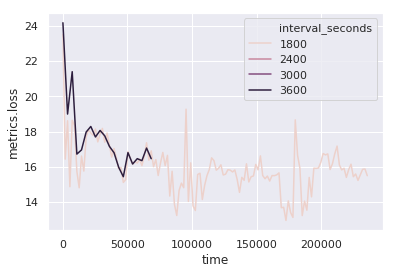This has been tested with python3.4
pip install -r requirements.txt
ALL DATASETS ARE LICENSED BY CRITEO. CONTACT THEM FOR PERSONAL ACCESS TO THE DATA. DO NOT ACCESS THE DATA WITHOUT A LICENSE.
Criteo Conversion Dataset
Available @ http://labs.criteo.com/2013/12/download-conversion-logs-dataset/
~1.5 Gb, 15mil clicks
Dataset construction:
The dataset consists of a portion of Criteo's traffic over a period of two months. Each row corresponds to a display ad served by Criteo and subsequently clicked by the user...
See Modeling Delayed Feedback in Display Advertising
Criteo TB Dataset
NC: there is no timestamp available. the highest grain date is 'day'
See http://labs.criteo.com/2013/12/download-terabyte-click-logs-2/
for i in {0..23}; do
curl http://azuremlsampleexperiments.blob.core.windows.net/criteo/day_${i}.gz | \
gzip -d | wormhole/bin/convert.dmlc -data_in stdin -format_in criteo \
-data_out day_${i} -format_out libsvm
done
See run.py for an easy CLI interface -
python3.4 run.py experiment \
--experiment-id=30_mins \
--interval-secs=1800 \
--model-params='{"learning_rate":0.1, "l1_regularization_strength":0.5, "l2_regularization_strength":0.5}' \
--data-params='{"shuffle":False, "num_epochs":1}'Experiments will log results to the specified file per partition step:
{
"hyperparameters": {
"model": {
"l2_regularization_strength": 0.5,
"l1_regularization_strength": 0.5,
"learning_rate": 0.1
},
"data": {
"shuffle": false,
"num_epochs": 1
}
},
"experiment_id": "30_mins",
"metrics": {
"global_step": 18.0,
"label/mean": 0.2661654055118561,
"loss": 18.612567901611328,
"prediction/mean": 0.21581190824508667,
"average_loss": 0.16793294250965118
},
"partition": 2,
"interval_seconds": 1800
}See example_nb.ipynb
df = read_experiment_df("data/experiment.log")
sns.lineplot(
x="time",
y="metrics.loss",
#col="interval_seconds",
#kind="line",
hue="interval_seconds",
data=df
)